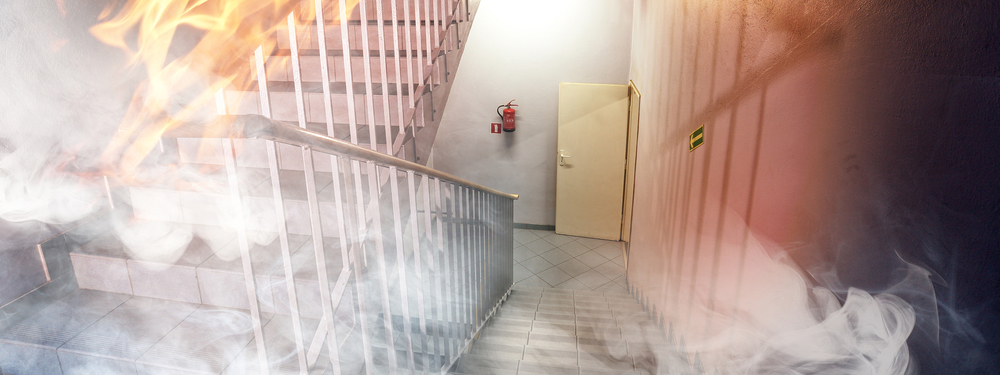
One of the most common disasters that the American Red Cross responds to is home fires. An estimated 40,000 pets die in house fires every year. Many house fires, which are easily preventable, are even started by pets themselves. There are many preparatory measures to ensure that you and your pets have a chance to make it out safely in the event of a fire.
– Include them in your family evacuation plan.
If you have more than one pet designate family members that each would be responsible for a pet. Practice your escape plan with your family and pets to familiarize them.
– Secure your pet in an emergency.
Evacuate your pets on a leash or in a carrier, keep leashes and cat carriers near exits or easily accessible in case of evacuation.
– Know your pets hiding places.
During a fire your pet will be terrified and most likely run to a place that they feel safe. Knowing their hiding places in advance can save precious time in a fire.
-Help firefighters help your pets.
Pet alert window clings affixed to a front window will save rescuers critical time when trying to locate pets. If you have any caged or confined pets an alert cling can also be placed on the window of the room where the pet is kept to further assist rescuers.
https://secure.aspca.org/take-action/order-your-pet-safety-pack
-Leave an open access
During an evacuation if you can not find your pet leave an open door that leads to the outside. Once safely outside call your pets name with any luck he will hear you and head to the sound of your voice. Designate a meeting place near your home to ensure everyone is accounted for.
– Practice fire prevention
Never leave your pet unattended near an open flame, make sure to thoroughly extinguish any before leaving your house. Invest in a flameless candle, which uses a light bulb rather than an open flame and removes the danger of your pet accidentally knocking it over. Inquisitive cats are notorious for singeing their hair and whiskers and have started many fires by knocking over lit candles.
In the event of a fire the most important thing you can do to protect your pets is to evacuate them, too. But remember never delay escape or endanger yourself or family members to rescue a family pet.